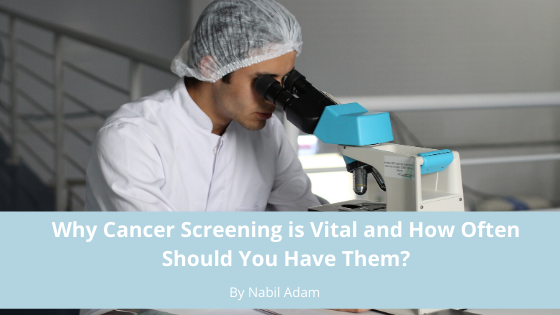Cancer is a condition that occurs as a result of uncontrolled multiplication of cells, which have the potential of inflating and destroying normal healthy cells. The life choices people make concerning their eating habits, exercise, and other habits play a significant impact on their general health as well as contribute significantly to the risk of developing cancer and other chronic lifestyle diseases. It is, therefore, critical for everybody to follow and adhere to recommendations for cancer screening tests.
Importance of Taking Cancer Screening Tests
Taking cancer tests before the onset of signs and symptoms is referred to as cancer screening. Early cancer screening is critical to the prospective individual as it gives them a chance to know their cancer status as early as possible. It also helps doctors and oncologist to treat and suppress the condition with ease before it develops symptoms. By the time cancer symptoms develop, the condition may have started to spread, making treatment even harder.
Several cancer screening tests have been determined to detect cancer early, enabling effective management, which in turn has lowered cancer mortality. Effective cancer screening tests are those that:
- Aim to find cancer early
- Reduces the probability of a person who is screened regularly succumbing to cancer
- Have more potential benefits than harms
Who Should Be Screened for Cancer and How Often Cancer Screening Should Be Done
Recently, numerous recommendations have been introduced, ranging from breast self-exams, colonoscopies, Pap smear, and many others, which all aim to detect the presence of cancer early enough for effective treatments. With all these cancer screening recommendations coming out, people are often overloaded with contradicting information, which in turn leaves them confused.
However, every individual needs to understand the risk factors that might make them susceptible to cancer, understand the benefits of early screening, as well as be aware of the impacts of different cancer treatments.
So which cancer should you be screened for, and how often should you take cancer screening tests? It depends. The three Rs of cancer screening should guide every individual. They include:
- Risk factors
- Recommendations
- Rationale
Final Verdict
Cancer is becoming a threatening health problem in America as well as throughout the world. The key to combatting this menace begins with every individual’s effort to take cancer screening tests frequently. Cancer is a killer disease, but with early detection, the condition can be manageable.

